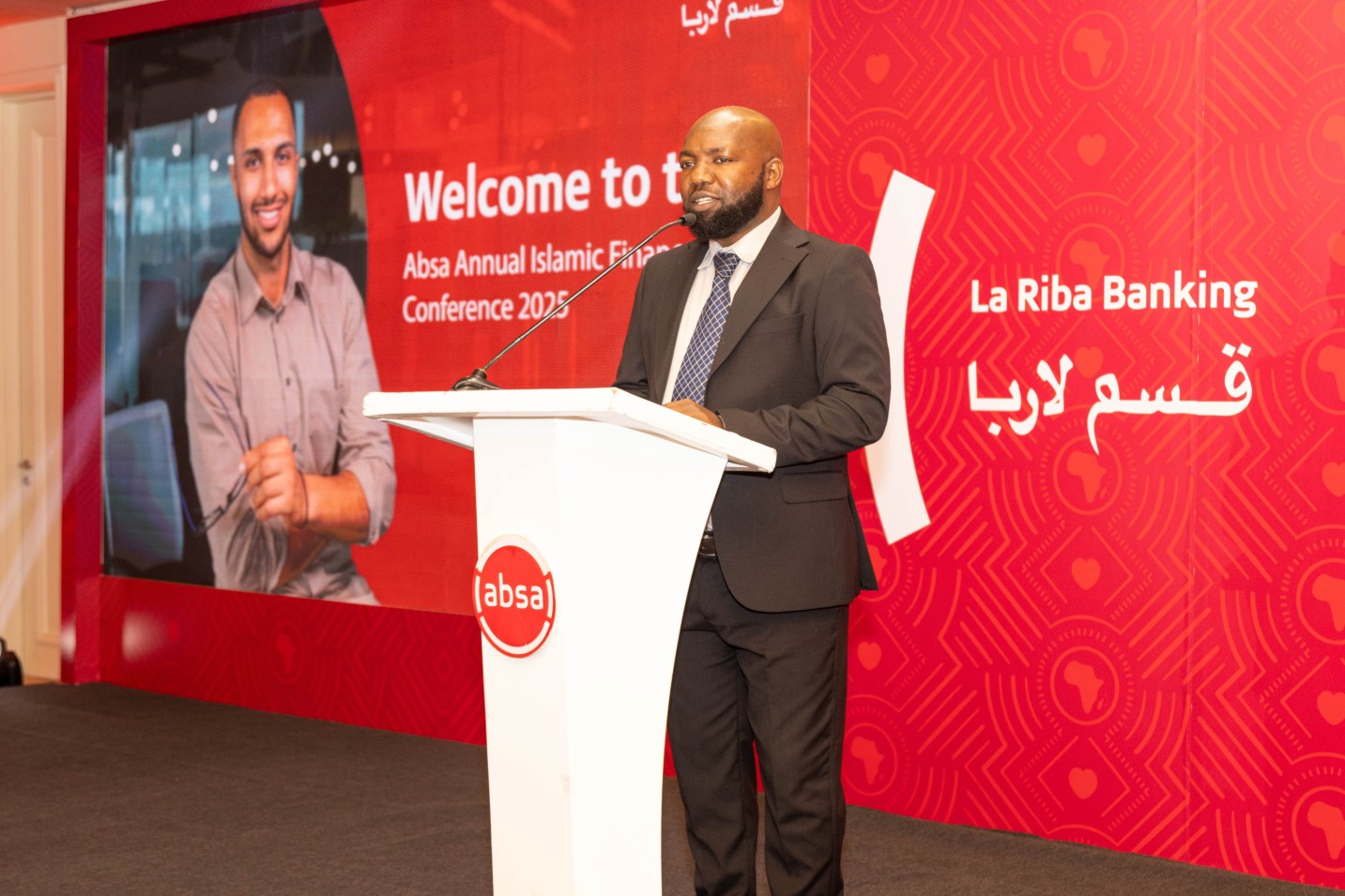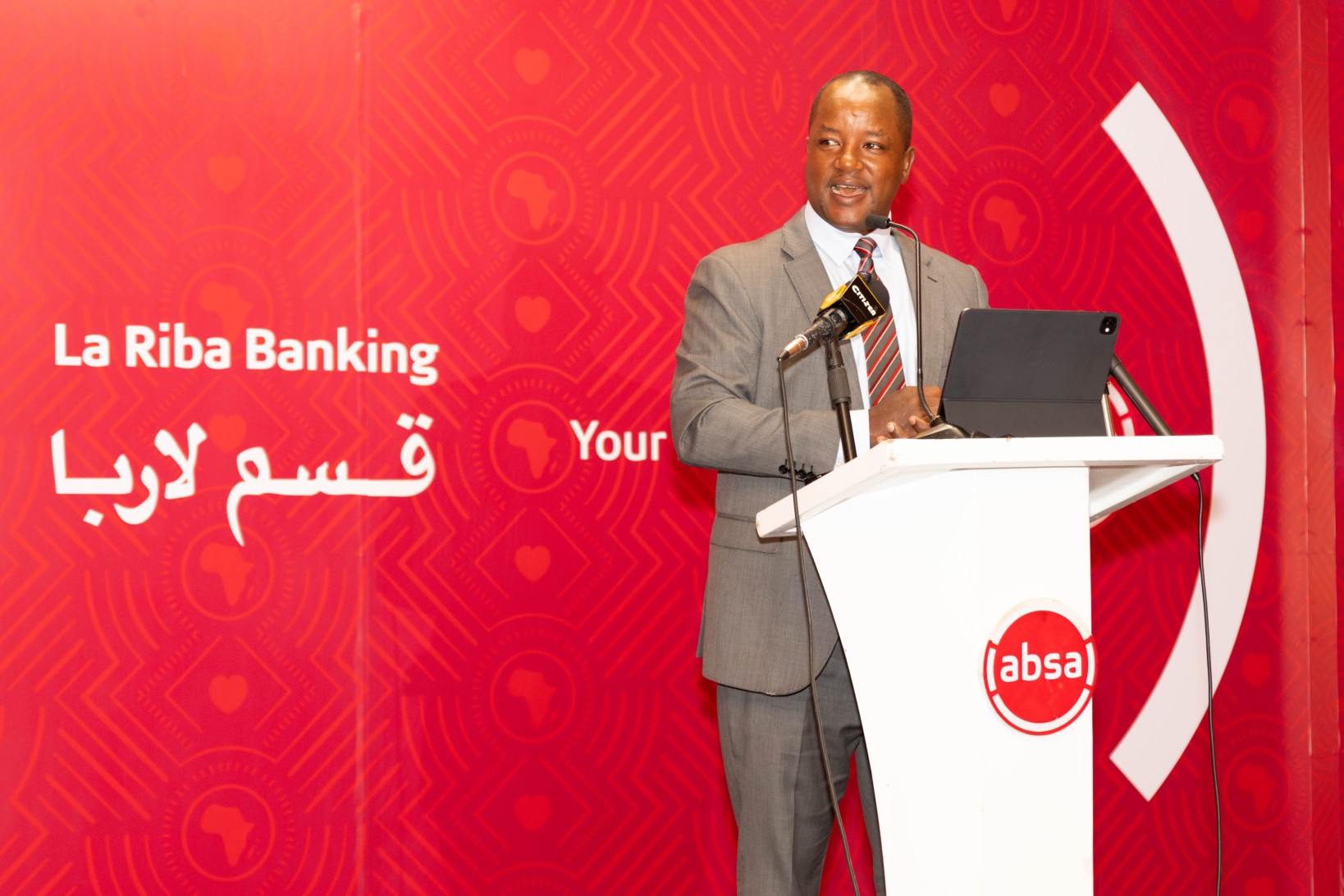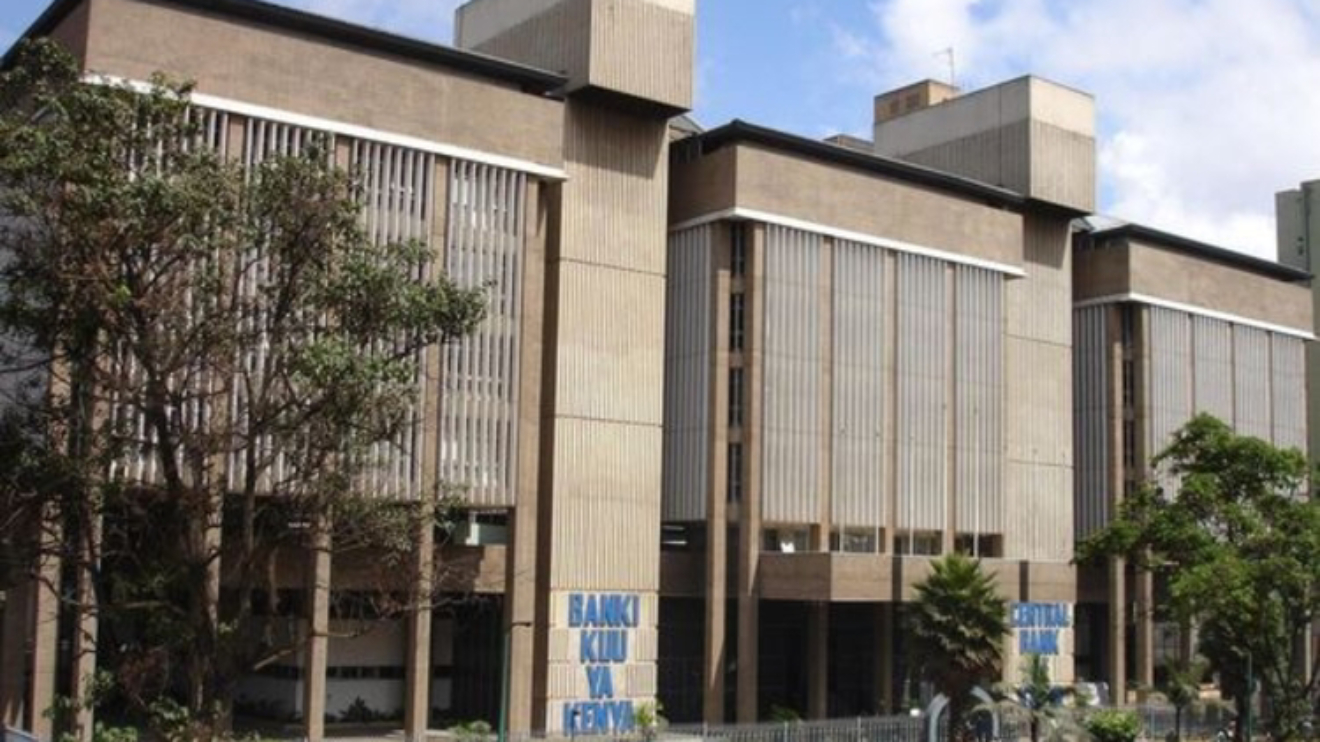Nairobi has become a hub for Islamic finance this week, as Absa Bank Kenya brought together thought leaders, policymakers, and industry pioneers at the 2025 Absa Annual Islamic Finance Conference.
It is a significant year, not only is Absa celebrating 20 years since introducing ‘La Riba’ (Islamic Banking) in Kenya, but the event also marked the launch of the Association of Shariah Compliant Service Providers of Kenya.
The association is Kenya’s first professional body dedicated to coordinating the Islamic finance ecosystem.
In his opening remarks, Absa Bank Kenya Head of Islamic Banking Tego Wolasa cast the conference as more than a mere anniversary celebration.
“This is a critical moment. We must chart a new path forward and advocate for policies that elevate Islamic finance both at Absa and across the sector,” said Wolasa.
Read More
Islamic Finance Stakeholders
Absa’s Shariah Manager Sheikh Hassan Wako stressed the need for tailored policy frameworks, regular multi-sectoral consultations and drawing of lessons from global models.
“We need to be deliberate, not incidental and policy must reflect our local realities, so let’s built collaboratively,” said Sheikh Wako.

Echoing that collaborative tone, Absa’s Business Banking Director Elizabeth Wasunna-Ochwa, challenged stakeholders to engage proactively so that emerging policies truly reflect the needs of all players in the sector, not just the banks.
Her call-to-action was simple: “Your voice matters. Help shape what Shariah banking looks like in Kenya.”
Regulation Confidence
For Absa Bank Kenya Chief Financial Officer Yusuf Omari, regulation is not a challenge but a a foundation that will play a critical role in improving the future of Islamic finance in Kenya.
“As the pioneer of Islamic Banking in Kenya, Absa is proud of the progress, but the next leap requires a solid regulatory environment,” stated Omari.
.jpg)
Omari indicated that by stakeholders pushing and succeeding in improving the policy framework they will boost customers confidence across all Islamic banking providers.
“Islamic Banking is the biggest growing sector in the world; we want to give it the prominence it deserves locally,” he concluded.
Capital Markets Call
Chief Guest, Capital Markets Authority (CMA) Senior Manager for Market Deepening Justus Agoti, acknowledged the gains of the past two decades but raised a cautionary note: public awareness is still low.
Agoti encouraged deeper collaboration across financial services, national treasury, and capital markets to craft both medium- and long-term strategies for the significant sector.
He pointed out that Islamic finance is a key contributor to economic growth in Kenya.
Numbers Behind Promise
The introduction of Islamic banking in 2009 has significantly transformed Kenya’s financial sector allowing Muslims to engage in formal banking without compromising their religion.
However, the penetration of Islamic banking in the country has remained low compared to traditional banking.
According to a Central Bank of Kenya (CBK) 2023 report, estimated net assets in Islamic banking at over Sh92 billion, accounting for about 1.1 per cent of Kenya’s total banking sector assets.
In spite of expectations that Islamic banking sector would account for about 23 per cent of Kenya’s market share by the end of 2023, the industry’s actual share remains relatively low.
The first-ever Shariah-compliant bond (Linzi Sukuk) was listed on the Nairobi Securities Exchange (NSE) back in 2024, a major development, raising Sh3 billion for public housing.
Policy Need
The momentum for a policy framework is fast building in Kenya even as awareness, product diversity, and trust are lagging behind.
To move Islamic finance from niche to mainstream, stakeholders was policymakers to finalise frameworks that boost Islamic finance and promote awareness among Muslim and non-Muslim customers.
They have also appealed to the Capital markets to offer instruments like sukuk and Shariah-compliant funds that serve the growing demand among investors.

The new Association of Shariah Compliant Service Providers of Kenya can act as both industry voice and accountability body where regulators, banks, fintechs, and academics converge to shape norms and standards.
Roadmap for Growth
20 years into its Kenyan journey, Islamic banking is still a minor player but stakeholders feel that the industry is ready for takeoff.
With regulatory momentum, industry collaboration, and visionary leadership ignited by the Absa conference, Islamic finance now has the ingredients to become a key contributor to Kenya’s financial and economic growth.
Islamic finance is poised as the next frontier in the financial sector coming at a time when financial inclusion, ethical investing, and capital mobilisation are national imperatives.







